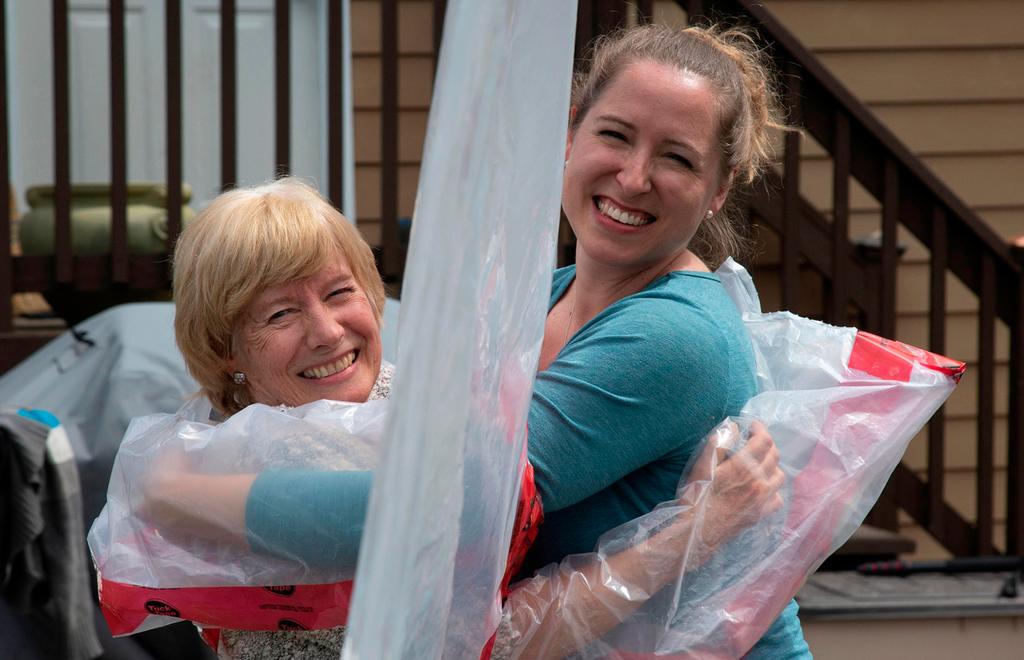As result of the coronavirus epidemic, 1 in 7 Israelis (14.1%) are afraid they will lose their home and almost half (46.5%) are worried they will not be able to pay their monthly expenses, the Central Bureau of Statistics said Tuesday.
The Situation Report of Civil Resilience during the Coronavirus Crisis, conducted by the CBS between May 11-14, shows that nearly 14.1% of Israelis, 789,300 people, reported that they or at least one family member has reduced their food intake or the number of weekly meals due to financial fears.
4 View gallery


A woman wears a protective face mask in Dizengoff Square, Tel Aviv
(Photo: Moti Kimchi)
Some 66.9% of those who said they were eating less also said they do not have enough money to buy food.
The data also shows that 44.6% of Israelis, some 2.5 million people, reported that the coronavirus epidemic worsened their and their families' financial situation, with 50.7% of that number being from the Arab sector.
Among people aged 65 and over, 20.6% reported the epidemic damaged their finances.
Some 16.1% of workers said they are worried they will lose their jobs.
Of those questioned, 26.7% said that they believe their financial situation will improve in the next 12 months, compared to 20.6% in a similar poll conducted in April.
4 View gallery


IDF soldiers deliver food to families under lockdown in Bnei Brak during the height of the outbreak
(Photo: Moti Kimchi )
Some 54.9% said they believe their financial situation would not change and 18.3% said they believed it would worsen – a decline from 27.3% in a survey conducted at the beginning of May.
The number of optimists within the Arab sector (36.9%) is higher than their Jewish counterparts (24.9%).
The CBS also examined the public health aspect of coronavirus and the implications of the lockdown, with the data showing that 53% of Israelis are still afraid of contracting the virus.
Data also showed that the number of those afraid of catching the virus who are aged 65 and higher (54.4%) is similar to those who are younger (52.6%).
4 View gallery


A Canadian woman finds a way to embrace her mother during the coronavirus pandemic
(Photo: AFP)
Women were found to be more worried about catching coronavirus (57.7%) than men (48%), despite the fact that data shows men are more susceptible to the disease than women.
Some 7.4% of people aged 21 and over, about 416,500 Israelis, reported that their personal health has deteriorated during the epidemic. Among those aged 65 and over, the number is higher at 9.7%.
About 48.6% reported their mental state is very good, 33.8% said that it is good, 12.1% that it is not so good and 5.4% that it is not good at all.
4 View gallery


Children return to their newly reopened kindergarten in Haifa
(Photo: Haifa Municipality)
Some 33.4% of the population, some 1.9 million people, reported that they felt stress and anxiety to a certain degree, with some 16.2% saying they felt a certain level of depression and 18.4% feeling loneliness.
The survey also focused on the emotional state of children during the epidemic, with 61.1% saying that it hadn't changed and 25.7% saying that it has worsened to some degree.

